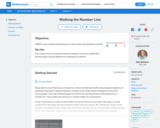
Links to 6 lessons and activities that build student skills in standard W.3.3d: Provide a sense of closure.
- Subject:
- Arts
- English Language Arts
- Material Type:
- Lesson Plan
- Provider:
- BetterLesson
- Date Added:
- 12/01/2023

Links to 6 lessons and activities that build student skills in standard W.3.3d: Provide a sense of closure.

Links to 99 lessons and activities that build student skills in standard W.3.4: With guidance and support from adults, produce writing in which the development and organization are appropriate to task and purpose.

Links to 75 lessons and activities that build student skills in standard W.3.8: Recall information from experiences or gather information from print and digital sources, take brief notes on sources and sort evidence into provided categories.

Links to 40 lessons and activities that build student skills in standard W.4.2b: Develop the topic with facts, definitions, concrete details, quotations, or other information and examples related to the topic.

Links to 4 lessons and activities that build student skills in standard W.4.2c: Link ideas within categories of information using words and phrases (e.g., example, also, because).

Links to 27 lessons and activities that build student skills in standard W.4.2d: Use precise language and domain specific vocabulary to inform about or explain the topic.

Links to 3 lessons and activities that build student skills in standard W.4.2e: Provide a concluding statement or section related to the information or explanation presented.

Links to 4 lessons and activities that build student skills in standard W.4.3c: Use a variety of transitional words and phrases to manage the sequence of events.

Links to 89 lessons and activities that build student skills in standard W.4.4: Use a variety of transitional words and phrases to manage the sequence of events.

Links to 21 lessons and activities that build student skills in standard W.4.6: With some guidance and support from adults, use technology, including the Internet, to produce and publish writing a well as to interact and collaborate with others; demonstrate sufficient command of keyboarding skills to type a minimum of one page in a single sitting.

Links to 8 lessons and activities that build student skills in standard W.4.9a: Apply grade 4 reading standards to literature (e.g., Describe in depth a character, setting, or event in a story or drama, drawing on specific details in the text [e.g., a character's thoughts, words, or actions]).

SWBAT describe numbers using base ten language, models and number charts.

The number line is a powerful math tool students can use to model their thinking when solving addition and subtraction problems. Use this lesson to help students use the number line to count forwards and backwards from 0 to 30.

In this lesson, students will read and discuss story events and then write an informative sentence about one of the events.

Students will write about what they would trade for gold and practice inventive spelling in the process. After reading "In 1492", students will discuss how Christopher Columbus traded with the natives and then write what they would trade the native people for gold. End the lesson by playing the Environmental Trading Game.

Climates vary and understanding that water on earth reacts to the climate is a way to understand why water can be found as both liquid and solid on earth. Included in this lesson is a video of the activity in action, and an image of a world map.

Students will use a variety of objects to participate in a partner activity and communicate using light and sound waves. Resources include a video, pictures and videos of the lesson in action, and examples of student work.

Students will use tools and materials to design and build a device that uses light or sound to solve the problem of communicating over a distance. Resources included are videos of the lesson in action, a student worksheet, and an assessment rubric.

Students often classify objects by size and shape. Now they will look more at the properties of objects such as hardness, flexibility, and texture. Included in this lesson are examples of student's science journal entries, a video of the lesson in action, and a printable copy of a journal page.

Students will learn what it means to represent a number in different ways and will begin to explore decomposing numbers. Included is a detailed lesson plan, link to an online game, worksheet, center ideas, and a "Ways to Make 10" chart.